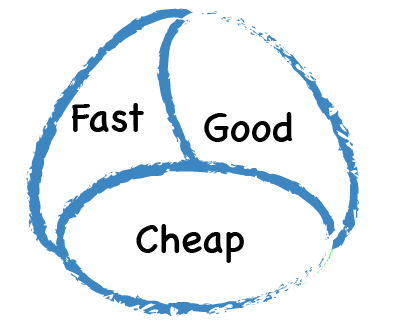Efficiency in the scope of a project
Because it deals with resources—your resources—efficiency is very closely related to project management.
A project needs:
A specific objective
This is a prerequisite of efficacy.
- Outcome (what will happen, a target)
- Quantitative and qualitative measurement (quality can be measured. Indeed, it has to)
- The objective takes place within time limits, as in a SMART goal.
- 2 – To make sense
In modern organizations, especially with knowledge workers, things need to make sense. If they don’t, the quality of the output decreases, time is wasted, motivation goes down, and so on.
It requires resources
- People
- Technical resources (IT…)
- Money
- Energy, etc.
Regarding people:
- Competencies
- Information (communication, ie. clear deadlines)
- Organization skills
Planning is everything
so you need to be able to determine milestones and identify bottlenecks. Planning is so important because the plan can never be fulfilled 100%. There always unexpected events, which requires flexibility. As the saying goes “the map is not the territory.” Be ready for changes (seeing them coming, adapting, communicating about them).
Leadership
(setting a direction) is an essential element because it aligns tasks and jobs/missions with the vision. Leadership is not a matter of charisma, it is just about vision.
Monitoring
and control. How this works needs to be agreed upon.
Reviewing
In the life cycle of project management, reviewing is an essential part. Even though it happens at the end, it is necessary to review the project. It is an opportunity for learning and improvement of performances: taking efficient learning into the future. It can be linked to feedback (which has nothing to do with finger pointing).
As a final reminder on projects and how they link to efficiency, a project has a scope, a cost, and a schedule. The main consequence is that between:
- fast
- good
- and cheap,
you can only get two, as in “good and fast but not cheap.” Nobody is bound to the impossible (see the Tube)


